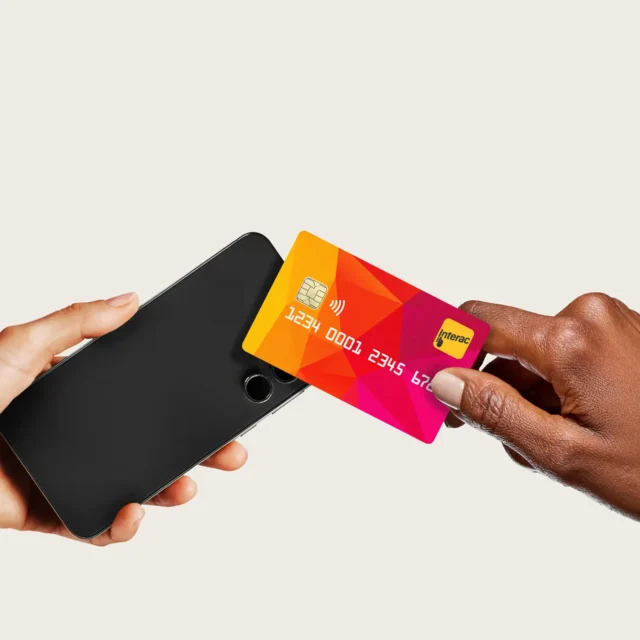The age of the digital economy has arrived, which means the personal cheque is on its way out.
Once upon a time, every paycheque had to be cashed in person, inside a bank, during standard business hours. Now, cheques face competition from a range of payment options like Interac e-Transfer that make it easier to send, receive and even request money anytime, anywhere. Paying with paper may soon seem as antiquated as sending a telegram.
Using Interac e-Transfer and other peer-to-peer services, consumers are already adapting to this new reality in their personal lives. But despite all the advantages that consumers are now realizing from adopting digital payments —such as convenience, real and near real-time payments, safety and security — businesses are still reliant on paper invoices and cheques, each of which can take days to reconcile.
Forty-five per cent of decision-makers in Canadian businesses acknowledged that many payment processing activities (such as writing cheques) can be tedious. However, 57 per cent of Canadian corporations still rely on cheques to pay for business expenses, even though they are fraught with challenges. This continued reliance on cheques creates a few big issues:
Cheques Put a Hold on Companies’ Finances
Longer reconciliation times are a major challenge with cheques along with a lack of transparency into cash flow. Once someone decides to make a payment using a cheque, they will need to fill it in or print it, get it signed, put it in the mail. Once it’s received, the cheque will need to be manually reconciled and deposited – possibly involving a visit to the bank. Based on typical payment terms, it can take up to 60 days to process traditional cheque payments, meaning businesses can wait up to two months to access liquid funds to manage their day-to-day operations.2
This doesn’t even include the time and uncertainties surrounding cheques like chasing customers or suppliers whose cheques may be “lost in the mail” or if there are insufficient funds. These payments may never come through.
Cheques Bring Old Problems to New Technology
Even with a more convenient deposit experience, the inconvenience of cheques persists in other ways. Since the hard copy still exists after the electronic information has been sent, so too does the potential for fraud or customer error. A fraudster could attempt to submit two different copies of the same cheque, while a legitimate user may accidentally try to cash both an electronic version and a hard copy, which makes holding periods a necessity.
The Digital Economy and the Future of Business Payments
Businesses seek efficiencies for running their business at every opportunity. When it comes to cheques, 67 per cent of small business say they would leave them behind if a suitable alternative was available3. In a recent Interac survey, 46 per cent of decision-makers in Canadian businesses agreed that reconciling payments is time-consuming, and 45 per cent acknowledged the tedious nature of some payment processing activities, such as writing cheques.
Businesses are already seeing the benefits of digital payments, including operational efficiencies and increased cash flow, helping them stay competitive in the digital economy.
For a business owner, the ease of immediately requesting, sending and receiving money from anyone in Canada is an integral component of maintaining a strong cash flow and running a successful business. With increased processing speed, transparency and predictability, immediate access to funds via Interac e-Transfer for Business allows business owners to put their money back to work for the business right away.
The good news is solutions like these are on the horizon. For businesses, Interac offers two features through Interac e-Transfer, Autodeposit and Request Money. With Autodeposit, funds are automatically deposited into a user’s bank account using a telephone number or email, without having to answer a security question. This allows ease of access and is especially useful for small businesses who may be receiving multiple Interac e-Transfers at once.
With the Request Money feature, users can go into their online or mobile banking and easily request funds they are owed from a customer or vendor. This eliminates time spent waiting for an invoice to be mailed and a cheque to be mailed back and can enable business owners to put those funds back into their business that much quicker.
Additionally, Interac is working towards enhancements that directly address challenges businesses face around data, speed, operational efficiencies and higher limits. Elements of the service are already compatible with ISO20022, the global standard for electronic messaging, to incorporate invoices and alternate payment options, offering greater flexibility to the market. Interac is further optimizing the service by putting the groundwork in place to raise transaction limits securely and better meet the needs of industry. Once available broadly to the market, more businesses may finally be ready to check out.
1,3 Payments Pules: Small Business Survey Edition, Payments Canada, March 2018
2 Based March 2018 Moneris A Payment Method Worth Buying Into: Four Ways Commercial Payment Cards Benefit Suppliers.


